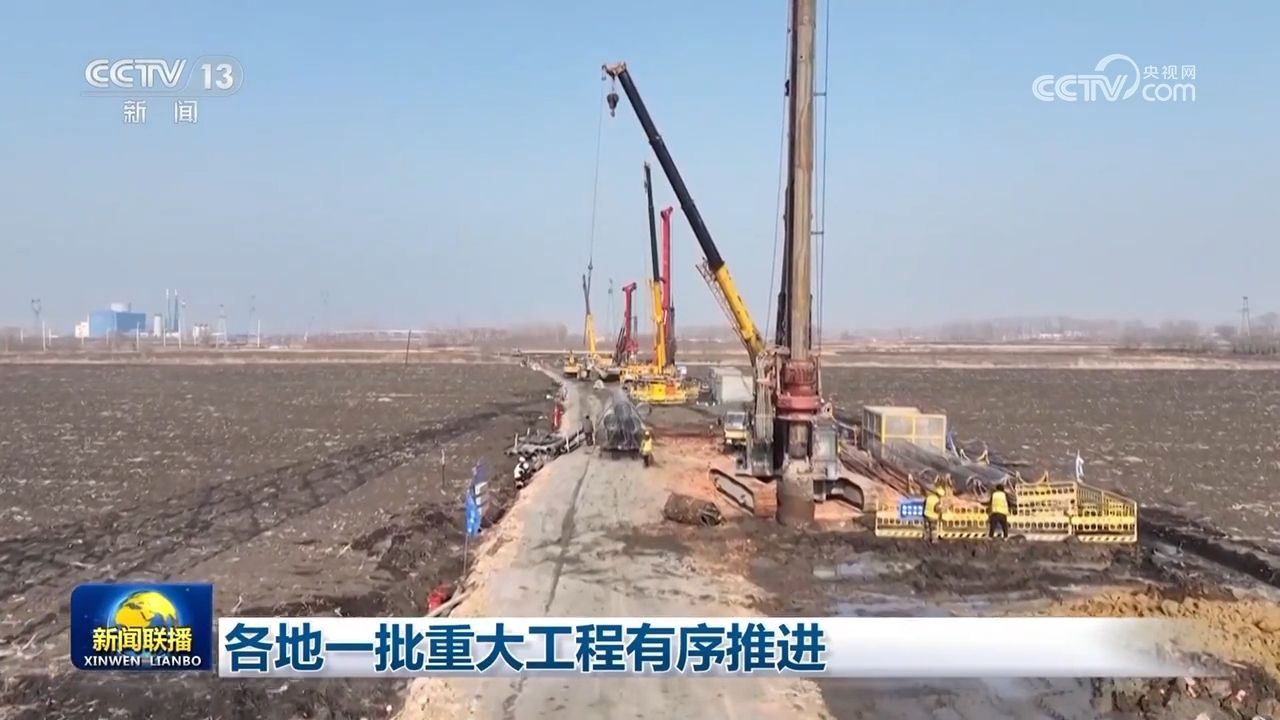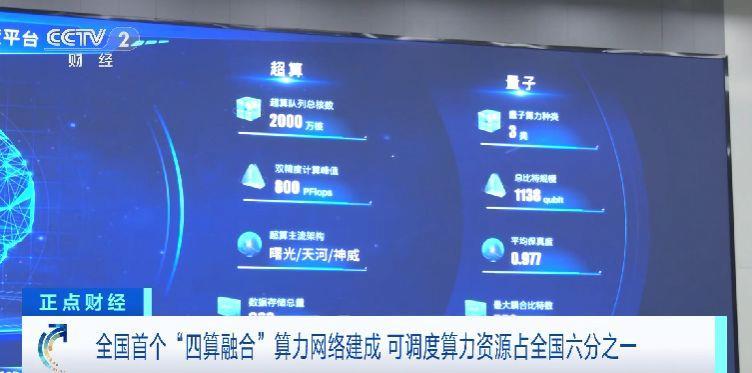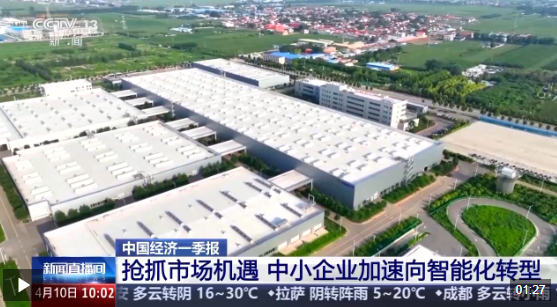Rethinking the consequences of U.S. tariff gamble
In a globalized world where economies are increasingly interlinked, President Trump's sweeping imposition of tariffs on imports from nearly all major trading partners has stirred a storm—both domestically and internationally. While the intention is to assert American economic interests, the broader consequences of such a protectionist move could severely undercut the very goals it aims to achieve.。
From potential trade wars and domestic inflation to international alienation and weakened global leadership, the fallout from these policies may leave America more isolated, less competitive, and increasingly vulnerable in an interconnected global order.。

Tariffs in theory vs. reality。

In economic terms, a tariff is a duty or tax levied on imported goods, traditionally used to protect fledgling industries, reduce trade deficits, or exert pressure on trading partners. Historically, countries like the U.S. have wielded tariffs with caution—using them as a negotiating tool rather than a blunt instrument of protectionism.。

But today's context is different. The U.S. is no longer a manufacturing-heavy economy. Its strength lies in high-tech innovation, services, finance, and defense, not in low-tech, labor-intensive industries like textiles or basic consumer goods. Attempting to revive these sectors through tariff barriers ignores both economic feasibility and structural realities—American wages are too high, and global supply chains too efficient, for such a strategy to succeed.。
A unilateral decision with limited consensus。
Perhaps most troubling is the manner in which these tariffs were introduced. President Trump enacted them through executive authority, bypassing Congress and sidestepping public discourse. Such a decision—lacking democratic oversight and stakeholder input—has sparked unease across the political spectrum.。
Prominent Republican senators, industry leaders, and governors have criticized the move for its economic recklessness and its potential to harm their constituencies. Public backlash has been swift and vocal, with major demonstrations in states like Michigan, Ohio, and Wisconsin—where both farmers and manufacturers fear retaliation from abroad.。
Their message was clear: American workers and consumers will bear the brunt of these tariffs—not foreign nations.。
Who really pays for tariffs?
Despite political rhetoric, tariffs are not paid by foreign exporters. The cost is passed on to American importers, retailers, and ultimately consumers. Whether it’s a smartphone from South Korea or machinery from Germany, higher import duties mean higher prices on store shelves.。
A recent analysis by the U.S. Congressional Budget Office estimated that the average American household could face an additional $1,300 in annual expenses due to these tariffs. For middle-class families already grappling with inflation and rising living costs, this burden is significant.。
Moreover, small businesses—which form the backbone of the U.S. economy—are disproportionately affected. Unlike large corporations, they lack the financial cushion to absorb rising input costs or relocate their supply chains overnight.。
Global reaction: Allies alarmed, rivals energized。
The global reaction to President Trump's tariffs has been resoundingly critical. Traditional U.S. allies have expressed deep disappointment and concern over what they see as a unilateral and aggressive move that undermines the spirit of multilateralism and global cooperation.。
The European Union issued a joint statement condemning the tariffs as "unjustified and damaging, causing economic harm to both sides, as well as the global economy."。
Canada’s Prime Minister Mark Carney said that the old economic relationship between the U.S. and Canada is “over,” vowing that Ottawa will respond “forcefully.”。
The Chinese government strongly condemns and firmly opposes U.S. abuse of tariffs.。
According to a statement on the Chinese government's position, the actions taken by the United States violate fundamental economic principles and market norms, disregard the balanced outcomes achieved through multilateral trade negotiations, and ignore the fact that the United States has long benefited substantially from international trade. Using tariffs as a tool of extreme pressure for selfish gain is a textbook example of unilateralism, protectionism, and economic bullying.。
Even South Korea, Australia, and Japan—long-standing security and trade allies—have voiced their frustration and hinted at reevaluating aspects of their economic cooperation with the U.S.。
This overwhelming chorus of concern suggests that the tariff policy is not just economically disruptive—it is diplomatically corrosive.。
Global retaliation: A domino effect。
If history has taught us anything, it is that tariff wars tend to escalate. In response to U.S. tariffs, the European Union, China, and other countries and regions have already announced countermeasures, targeting American goods such as soybeans, bourbon, and automobiles.。
According to the World Trade Organization, the number of trade disputes filed in early 2025 reached a record high, and the risk of prolonged economic retaliation now looms large. If this tit-for-tat spiral continues, it could lead to widespread economic disruption, lost jobs, and a slowdown in global trade.。
The World Bank warned that U.S. across-the-board tariffs of 10% could reduce already lackluster global economic growth of 2.7% in 2025 by 0.3 percentage point if America's trading partners retaliate with tariffs of their own. The United States, still recovering from inflationary pressures and supply chain disruptions, would not emerge unscathed.。
Undermining U.S. alliances and global influence。
Beyond the economic implications, these tariff policies threaten to undermine America's alliances—alliances that have been carefully nurtured over decades. Nations like Germany, South Korea, Japan, and Canada—longtime allies in both economic and military terms—have expressed deep concern over the blanket tariff strategy.。
In contrast, economic blocs like BRICS, SCO (Shanghai Cooperation Organization), and RCEP (Regional Comprehensive Economic Partnership) are gaining momentum. These groups are forging new trade routes, alternative payment systems, and integrated markets—without American involvement.。
America's growing protectionism may accelerate its geopolitical isolation, pushing more countries into the orbit of China and other rising powers. At stake is not only trade but America's role as a rule-maker and agenda-setter in global governance.。
Rethinking the path forward。
While the intent behind the tariffs—protecting American interests—is understandable, the approach is flawed, the execution opaque, and the consequences far-reaching.。
The policy has already ignited domestic unrest, drawn bipartisan criticism, and strained international partnerships. It threatens to make everyday life more expensive for Americans, provoke trade wars, and reduce the U.S.'s global relevance.。
Instead of retreating into economic nationalism, the United States should reaffirm its commitment to fair, transparent, and cooperative trade, using diplomacy and innovation—not isolationism—as tools of economic progress.。
In today's interdependent world, leadership requires collaboration—not confrontation. America must choose wisely.。
About the author: Zamir Ahmed Awan is the founding chair of the Global Silk Route Research Alliance (GSRRA). He is a sinologist and former diplomat. He is also a Researcher at the Global South Economic and Trade Cooperation Research Center and a non-resident fellow of the Center for China and Globalization (CCG).。
(责任编辑:焦点)
-
 新华社北京4月9日电记者袁睿、成欣)外交部发言人林剑9日在例行记者会上表明,美国高级官员在巴拿马运河问题上歹意进犯我国,抹黑损坏中巴协作,再次露出美国蛮横霸凌面貌,中方对此表明坚决对立。有记者问:据报
...[详细]
新华社北京4月9日电记者袁睿、成欣)外交部发言人林剑9日在例行记者会上表明,美国高级官员在巴拿马运河问题上歹意进犯我国,抹黑损坏中巴协作,再次露出美国蛮横霸凌面貌,中方对此表明坚决对立。有记者问:据报
...[详细]
-
 中新网北京5月6日电 (记者 孙自法)施普林格·天然旗下专业学术期刊《天然-人类行为》最新宣布一篇心理学论文称,一项对逾3000名英国青少年(11-19岁)的研讨发现,有精力健康症状的青少年比没有精力
...[详细]
中新网北京5月6日电 (记者 孙自法)施普林格·天然旗下专业学术期刊《天然-人类行为》最新宣布一篇心理学论文称,一项对逾3000名英国青少年(11-19岁)的研讨发现,有精力健康症状的青少年比没有精力
...[详细]
-
 极目新闻记者 张盼。通讯员 罗珊珊 关洪磊。5月5日晚,潜江生态龙虾城内灯光灿烂,潜阳城的“形象潜江龙虾秀”沉溺式扮演带游客们穿越千年。当晚,身着楚服的“芈月”手持红彤彤的潜江小龙虾款款走来,楚王挥动
...[详细]
极目新闻记者 张盼。通讯员 罗珊珊 关洪磊。5月5日晚,潜江生态龙虾城内灯光灿烂,潜阳城的“形象潜江龙虾秀”沉溺式扮演带游客们穿越千年。当晚,身着楚服的“芈月”手持红彤彤的潜江小龙虾款款走来,楚王挥动
...[详细]
-
勇者出征,载誉而归 ,第46届国际技术大赛国家集训队成员刘鑫雨:成功没有捷径,支付终有报答
 第46届国际技术大赛全国选拔赛于2020年12月13日落下帷幕。安徽新东方校园学子刘鑫雨代表安徽省队参与了“糖艺/西点制造项目”,在大赛中步步为营,顽强拼搏,取得全国八强的优异
...[详细]
第46届国际技术大赛全国选拔赛于2020年12月13日落下帷幕。安徽新东方校园学子刘鑫雨代表安徽省队参与了“糖艺/西点制造项目”,在大赛中步步为营,顽强拼搏,取得全国八强的优异
...[详细]
-
 湖北日报讯记者胡雯洁、通讯员谢子瑞、鲁依依)“年轻时没条件拍,我没想到老了还能留下这么精力的相片。”4月11日,荆州市荆州区社会福利院,一名白叟拿着前几日的相片重复抚摸,深有感触地说。4月7日,一场充
...[详细]
湖北日报讯记者胡雯洁、通讯员谢子瑞、鲁依依)“年轻时没条件拍,我没想到老了还能留下这么精力的相片。”4月11日,荆州市荆州区社会福利院,一名白叟拿着前几日的相片重复抚摸,深有感触地说。4月7日,一场充
...[详细]
-
 李祥斌,安徽新华电脑专修学院班主任、学生处主管。自2015年5月20日入职安徽新华以来,一直据守在岗位一线,屡次荣获优异班主任称谓,全新华共享自己的带班经历。【不扔掉不扔掉 用爱感染每一名新星】在几年
...[详细]
李祥斌,安徽新华电脑专修学院班主任、学生处主管。自2015年5月20日入职安徽新华以来,一直据守在岗位一线,屡次荣获优异班主任称谓,全新华共享自己的带班经历。【不扔掉不扔掉 用爱感染每一名新星】在几年
...[详细]
-
 电子竞技与新媒体运营。学制:3年。电竞≠玩游戏。作业远景光亮 电子竞技走向正路。炽热指数:★★★★★。引荐指数:★★★★★。作业满意度:★★★★★。#电子竞技作业远景#依据,2019年艾瑞数据发
...[详细]
电子竞技与新媒体运营。学制:3年。电竞≠玩游戏。作业远景光亮 电子竞技走向正路。炽热指数:★★★★★。引荐指数:★★★★★。作业满意度:★★★★★。#电子竞技作业远景#依据,2019年艾瑞数据发
...[详细]
-
 张君卯:2019届安徽新东方结业生。年纪:19岁。地点公司:合肥黑格餐饮办理有限公司。职位:文章捞面包河万达店司理。由于芳华,咱们尽力奔驰,尽力追梦;由于芳华,咱们不怕失利,当你奔驰的时分,现已临危不
...[详细]
张君卯:2019届安徽新东方结业生。年纪:19岁。地点公司:合肥黑格餐饮办理有限公司。职位:文章捞面包河万达店司理。由于芳华,咱们尽力奔驰,尽力追梦;由于芳华,咱们不怕失利,当你奔驰的时分,现已临危不
...[详细]
-
 央视网音讯。新闻联播):眼下,各地一批严重工程有序推动,助力经济高质量开展。交通基础设施建造厚实推动。我国“十四五”铁路开展规划要点建造项目——黑龙江佳木斯至同江铁路扩能改造工程开端主体结构施工。该项
...[详细]
央视网音讯。新闻联播):眼下,各地一批严重工程有序推动,助力经济高质量开展。交通基础设施建造厚实推动。我国“十四五”铁路开展规划要点建造项目——黑龙江佳木斯至同江铁路扩能改造工程开端主体结构施工。该项
...[详细]
-
“五一”房地产商场连续向好态势 多地方针“组合拳”加力稳楼市
 央视网音讯:本年“五一”假日,在一系列方针持续影响下,全国多地的房地产商场连续一季度的回暖趋势,尤其是一二线城市的房地产商场持续坚持向好态势。“五一”假日,记者来到北京市西三环的一个新房售楼处。这个楼
...[详细]
央视网音讯:本年“五一”假日,在一系列方针持续影响下,全国多地的房地产商场连续一季度的回暖趋势,尤其是一二线城市的房地产商场持续坚持向好态势。“五一”假日,记者来到北京市西三环的一个新房售楼处。这个楼
...[详细]

 全国首个“四算交融”算力网络建成 可调度算力资源占全国六分之一
全国首个“四算交融”算力网络建成 可调度算力资源占全国六分之一 BUYNOW4月礼 修理送现金
BUYNOW4月礼 修理送现金 长江路幼儿园教育集团总园:高兴篮球,健康成长
长江路幼儿园教育集团总园:高兴篮球,健康成长 抢抓商场机会 中小企业加快向智能化、数字化、绿色化转型
抢抓商场机会 中小企业加快向智能化、数字化、绿色化转型
